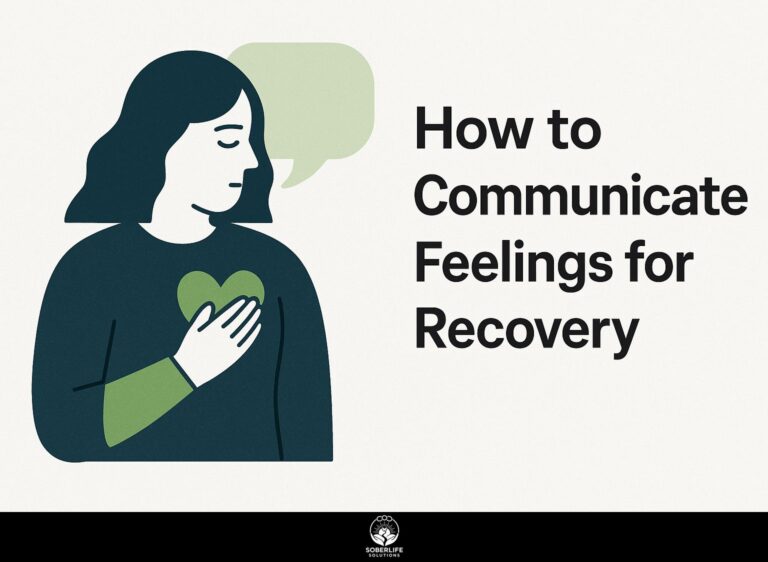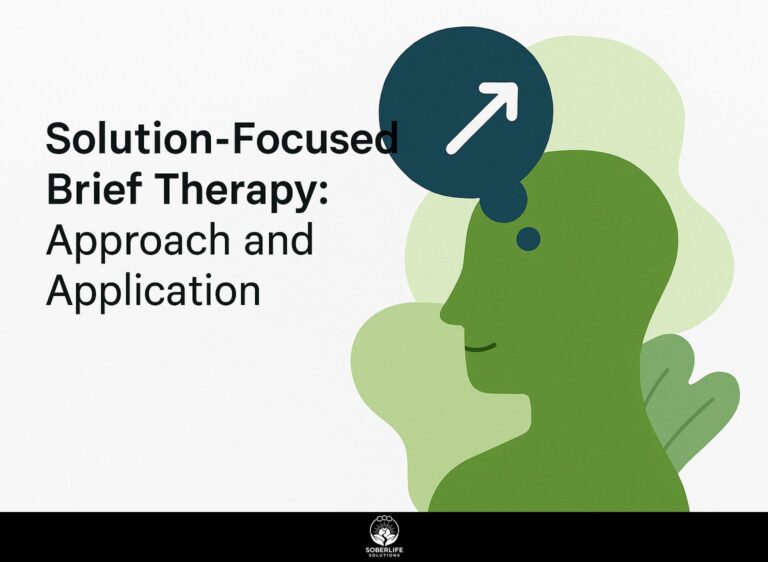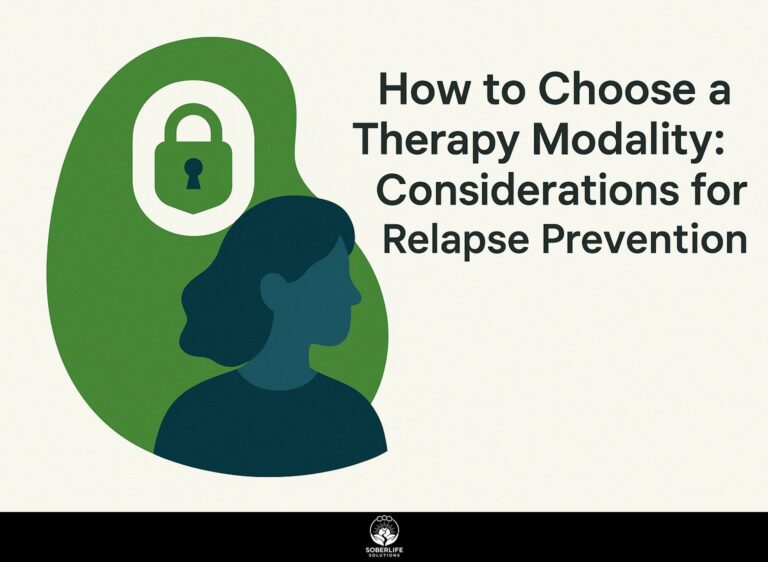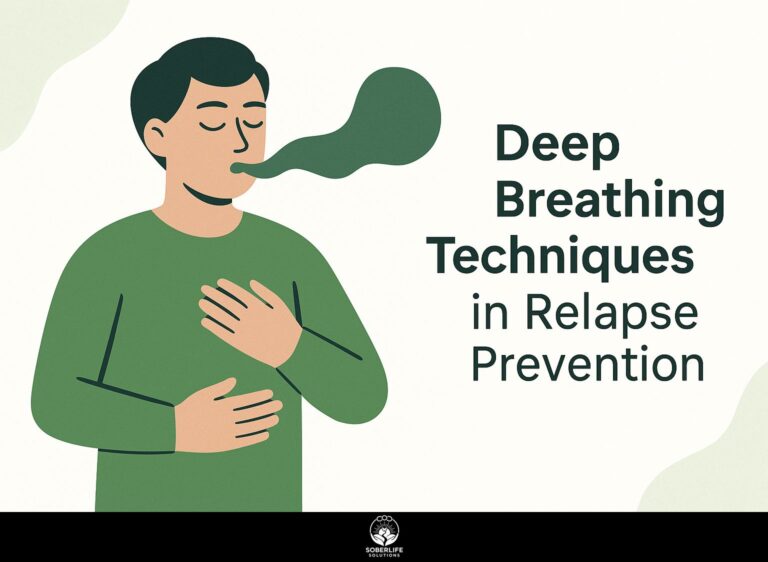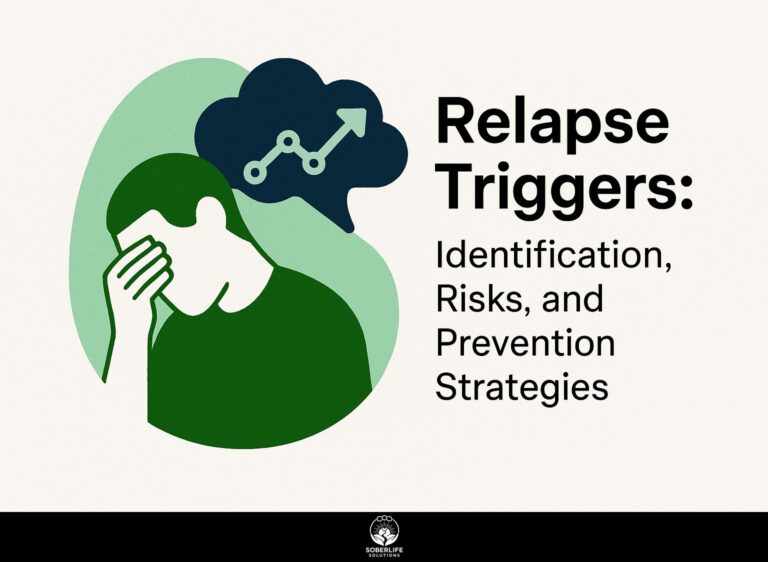Outpatient Therapy Options: Types and Benefits
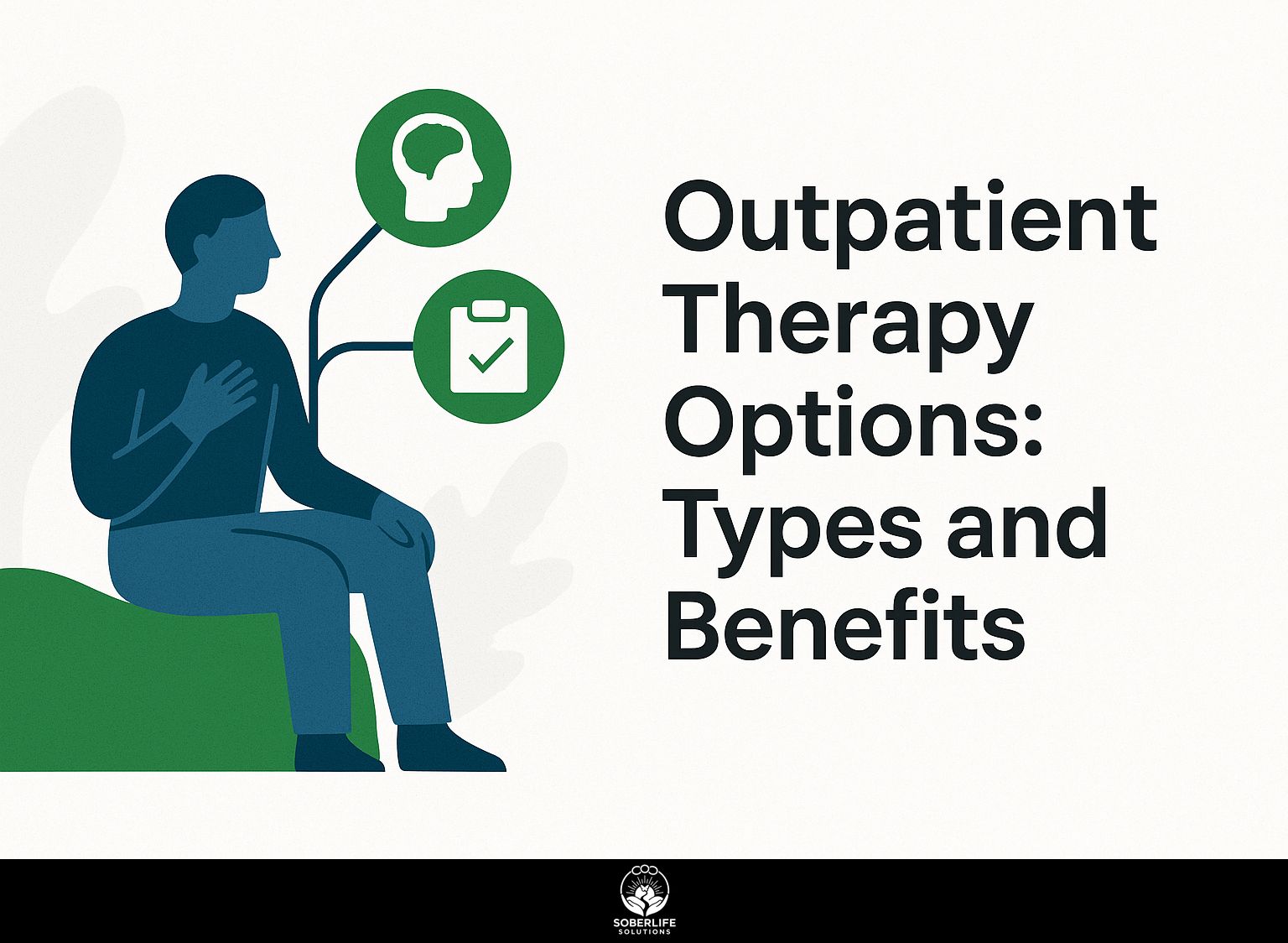
Outpatient therapy provides flexible treatment programs that can greatly improve mental health results. Choices like Cognitive Behavioral Therapy and help from groups such as Adaptive Care Network and Best Day Psychiatry and Counseling provide people with customized behavioral healthcare choices nationwide. This article discusses different kinds of outpatient therapy and their advantages, guiding you through care options for better health and strength.
Key Takeaways:
Definition and Overview
Outpatient therapy consists of treatment services offered to people who do not need continuous monitoring. It is a suitable choice for different mental health disorders.
Typical outpatient sessions occur once or twice a week, lasting 45 minutes to an hour, allowing individuals to balance therapy with daily responsibilities. This method encourages patients to get involved and supports using skills in daily situations.
Unlike inpatient therapy, which often includes round-the-clock supervision in a structured environment, outpatient programs are flexible and promote independence. Patients actively participate in treatment plans, utilizing tools like journals or apps for tracking progress, essential for personal growth and accountability.
Importance in Mental Health Treatment
Outpatient therapy is important in mental health care. It provides easy-to-reach help, allowing individuals to handle their mental health issues while carrying on with their daily activities.
This model is particularly effective in underserved areas, where access to mental health services is often limited. For instance, studies show that outpatient therapy can reduce symptoms of anxiety and depression by over 40% in patients after just a few months of treatment. As the National Alliance on Mental Illness (NAMI) highlights in their examination of the value of structured outpatient treatment, these programs are essential for improving access to care.
The price is typically about 50% less than hospital care, making it a practical choice for many families. Telehealth services improve access, letting people talk to therapists from home, removing distance limitations. For specific techniques utilized in therapy, explore the variety of alcohol counseling techniques available that can also be applied to broader mental health practices.
Types of Outpatient Therapy
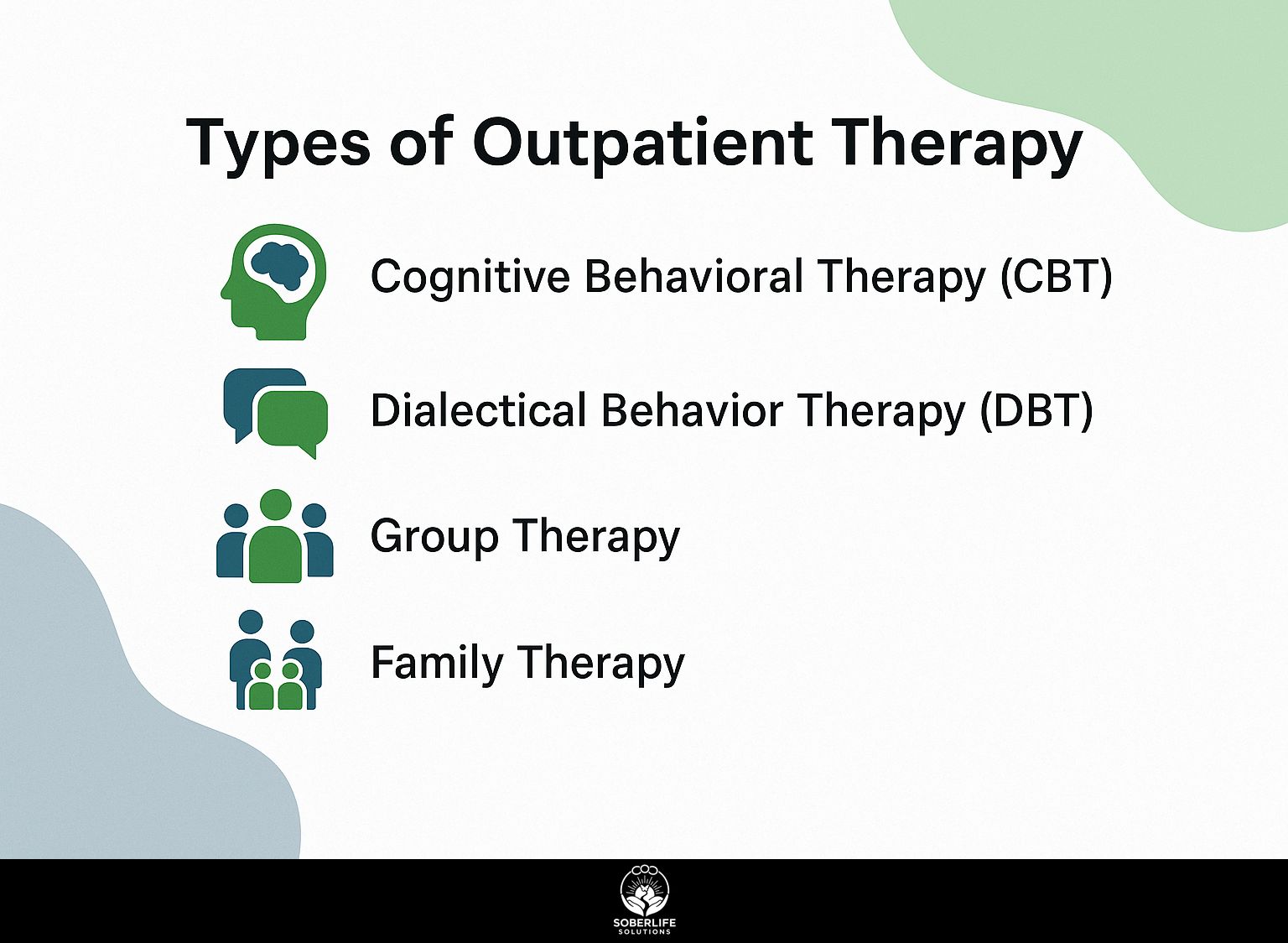
There are various kinds of outpatient therapy, each designed to address specific client needs and therapy objectives, ranging from cognitive methods to group interactions. For an in-depth look at one of these methods, see also group counseling for AUD, which delves into the dynamics and success rates.
Cognitive Behavioral Therapy (CBT)
Cognitive Behavioral Therapy (CBT) is a structured, goal-oriented therapy that focuses on changing negative thought patterns to improve emotional regulation.
CBT employs various techniques, including cognitive restructuring, exposure therapy, and behavioral activation. For instance, cognitive restructuring helps patients identify and challenge distorted thinking, while exposure therapy gradually confronts fears in a controlled manner.
Research has shown CBT to be effective for conditions like anxiety and depression, often leading to significant symptom relief. In outpatient settings, therapists can integrate CBT by developing individualized treatment plans, encouraging homework assignments, and utilizing tools like thought records to track progress. A comprehensive review published in JAMA Psychiatry supports CBT’s effectiveness across various mental health disorders and highlights its significant role in symptom alleviation.
This organized method helps patients grasp concepts more thoroughly and make long-term shifts in their thinking.
Dialectical Behavior Therapy (DBT)
Dialectical Behavior Therapy (DBT) combines cognitive-behavioral techniques with mindfulness strategies to help individuals manage intense emotions and improve interpersonal relationships.
DBT is particularly effective for individuals with borderline personality disorder, as it addresses emotional dysregulation through a structured approach.
Outpatient therapy typically involves weekly group sessions, focused on skills such as emotional regulation, distress tolerance, and interpersonal effectiveness.
In these groups, participants practice skills through role-playing and peer feedback, creating a supportive environment.
Individual therapy works well alongside group sessions by tailoring methods to each person’s unique situations, focusing on managing emotions and improving relationships.
Group Therapy
Group therapy provides a lively setting where people can talk about their experiences and get support from others who have similar mental health issues.
In outpatient settings, group therapy builds a feeling of community by bringing people together through shared experiences and social support.
Common topics include coping strategies for anxiety, managing depressive symptoms, and improving communication skills.
Many groups adopt formats such as psychoeducational sessions, where participants learn about mental health issues, or process groups that encourage open dialogue about individual feelings and experiences.
Tools like role-playing can improve how group members understand and empathize with each other, helping to create a secure environment for healing and growth.
Family Therapy
Family therapy involves treating the family unit as a whole, addressing issues that affect the mental health of individual members and their relationships.
In outpatient programs, family therapy plays a critical role in resolving interpersonal conflicts and enhancing communication. For example, it often addresses issues such as marital discord, sibling rivalry, or the impact of a family member’s addiction.
Therapists employ techniques like role-playing and structured communication exercises to help family members express their feelings and develop empathy. This method reduces confusion and helps build closer relationships, resulting in a better family environment.
Benefits of Outpatient Therapy
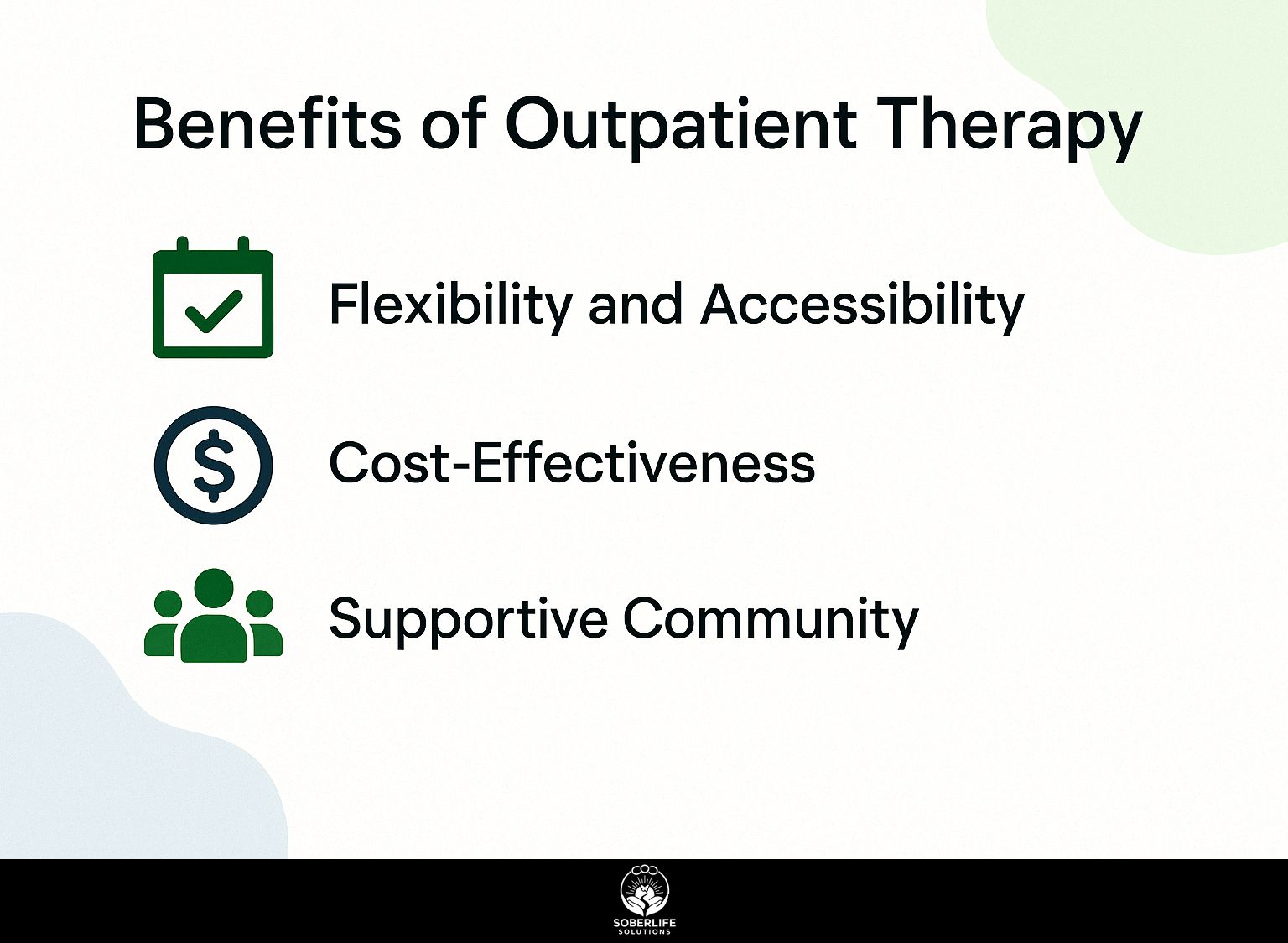
Outpatient therapy has many advantages, such as flexible scheduling, lower costs, and the chance to connect with a helpful group of people. For those involved in group counseling for alcohol use disorder (AUD), understanding its dynamics and success rates can further enhance the therapeutic experience. Explore our insights on group counseling for AUD to see how these sessions contribute to recovery.
Flexibility and Accessibility
One main benefit of outpatient therapy is that it offers flexible scheduling, so clients can go to sessions without interrupting their busy routines.
This flexibility significantly improves attendance rates, with studies showing that outpatient therapy has an attendance rate of approximately 75% compared to 50% in inpatient settings. A systematic review published in ScienceDirect supports these findings, highlighting various strategies that enhance attendance in outpatient settings.
Clients can schedule sessions during lunch breaks or after work, easing the burden of missed family commitments. Teletherapy options make it easier for clients to participate from their homes.
For example, many practices use platforms like Zoom or Doxy.me, which are easy to use on smartphones or computers, making it simple to fit therapy into daily schedules.
Cost-Effectiveness
Outpatient therapy generally costs less than inpatient care, offering a budget-friendly choice for people looking for mental health support.
Average session prices for outpatient therapy range from $100 to $250, depending on the provider and location. Many insurance plans, including Medi-Cal, Medicaid, and Medicare, cover a portion of these costs, significantly reducing out-of-pocket expenses.
Consider visiting community mental health clinics or sliding-scale therapists, which can be as affordable as $30 per session. Some organizations offer teletherapy options, which can further decrease costs while providing flexible scheduling.
Research local resources to find the best fit for your needs.
Supportive Community
Participating in outpatient therapy helps clients meet others, creating a supportive community that is important for emotional support and recovery.
Group therapy is a prime example, enabling participants to share experiences and learn from one another in a supportive environment.
Many therapy centers integrate peer support networks, where individuals engage in discussions and activities outside of structured sessions, reinforcing connections.
For instance, a local recovery group might host weekly meetups, allowing members to celebrate milestones and exchange coping strategies.
There are many success stories, like one where a client regained motivation through shared experiences, showing how community can play an important role in healing.
Choosing the Right Outpatient Therapy
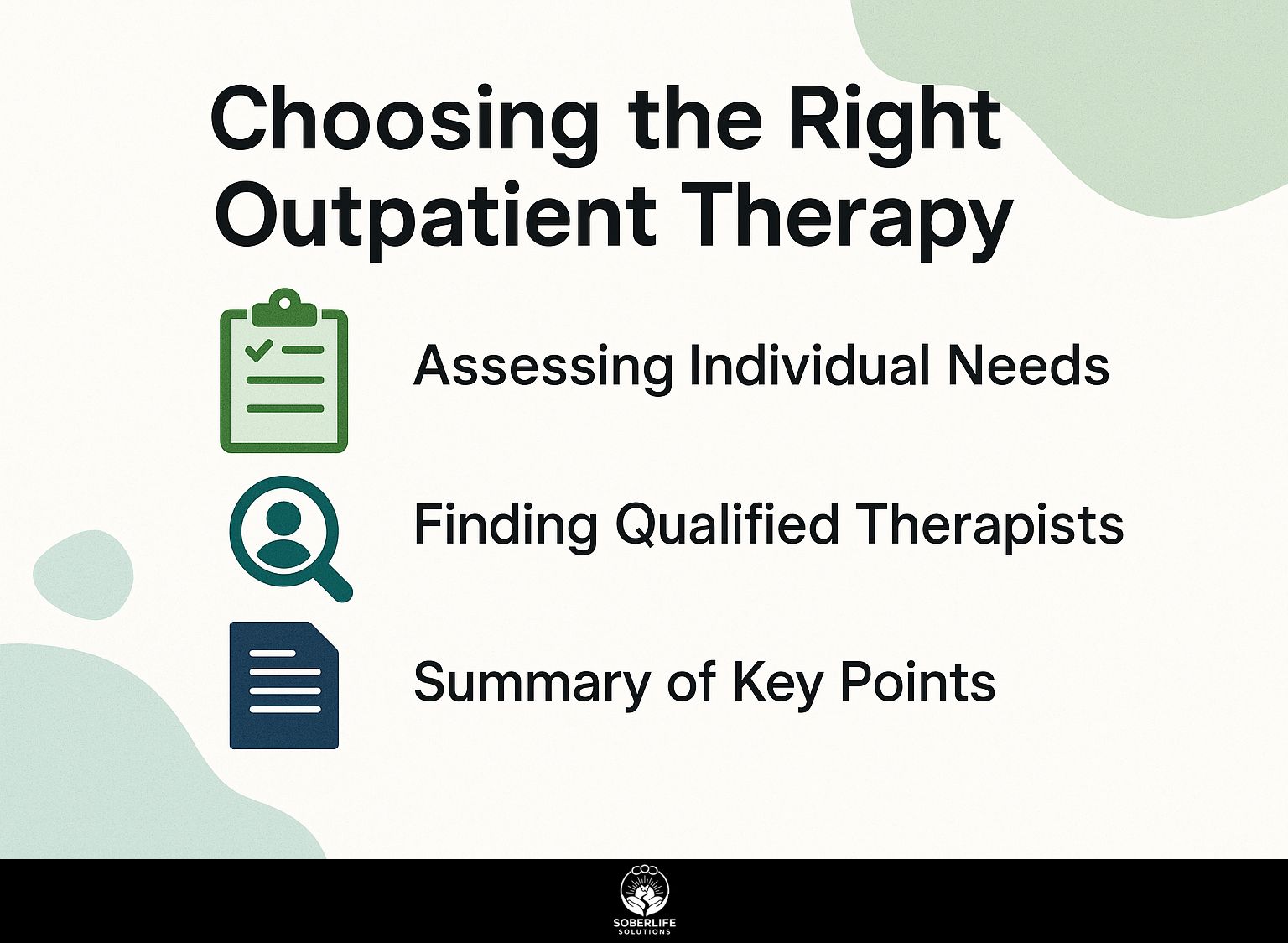
Selecting suitable outpatient therapy involves considering your needs and finding experienced professionals who can provide quality care. If you’re interested, you might find our guide on choosing alcohol treatment particularly helpful in understanding key considerations.
Assessing Individual Needs
Choosing the correct outpatient therapy depends on recognizing each person’s unique needs, as various issues call for different therapy methods.
To correctly evaluate your mental health needs, begin by recognizing particular symptoms you may have, like ongoing sadness, anxiety, or irritability.
Reflecting on personal goals, like improving relationships or managing stress, can guide your choice of therapy.
Tools like the PHQ-9, which evaluates depression, or the GAD-7 for anxiety, are excellent for quantifying your concerns.
These assessments can facilitate discussions with potential therapists, ensuring you find someone who specializes in addressing your unique challenges. To further assist in this process, consult our guide on how to choose a qualified therapist (benefit-focused), which provides a comprehensive step-by-step approach.
Finding Qualified Therapists
Finding experienced therapists for outpatient therapy can be easier by using online directories and referral services specifically for mental health professionals.
Resources like the National Alliance on Mental Illness (NAMI) directory and Psychology Today’s therapist finder are excellent starting points. These platforms allow you to filter therapists by specialty, location, and insurance accepted.
When assessing potential therapists, verify their credentials through state licensing boards and read reviews on their practice websites. Think about booking a first meeting to see if you feel comfortable and get along well, as good communication is very important for successful therapy.
Ensuring a good fit from the beginning can significantly influence treatment outcomes.
Summary of Key Points
This article highlighted various outpatient therapy types, their benefits, and guidance on selecting the right therapeutic approach for individual needs.
Outpatient therapy is important for addressing mental health problems, providing flexible schedules and customized care.
For example, cognitive-behavioral therapy (CBT) is effective for anxiety and depression, while Dialectical Behavior Therapy (DBT) can be beneficial for those dealing with emotional dysregulation.
To pick the right approach, think about your symptoms, your availability, and your therapist’s skills.
Tools like online directories (e.g., Psychology Today) can help locate local therapists specializing in your desired approach, ensuring you find the right support that fits your individual circumstances.
Frequently Asked Questions
What are the different types of outpatient therapy options available?
There are different kinds of outpatient therapy, such as physical therapy, occupational therapy, speech therapy, and mental health therapy.
What are the benefits of outpatient therapy?
The benefits of outpatient therapy include convenience, affordability, and treatment plans designed for each patient’s needs.
How does outpatient therapy differ from inpatient therapy?
Outpatient therapy allows patients to receive treatment and return home the same day, while inpatient therapy involves staying in a specialized facility for a longer period of time.
What conditions can be treated through outpatient therapy?
Outpatient therapy can be beneficial for a variety of conditions, including joint and muscle injuries, neurological disorders, speech and language disorders, and mental health conditions.
What are some examples of outpatient therapy techniques?
Some common techniques used in outpatient therapy include exercises, manual therapy, cognitive-behavioral therapy, and sensory integration therapy.
How can I find the right outpatient therapy option for me?
The best way to find the right outpatient therapy option is to consult with your healthcare provider and discuss your specific needs and goals. They can help you choose the most suitable type of therapy and refer you to a trusted therapist or facility.

